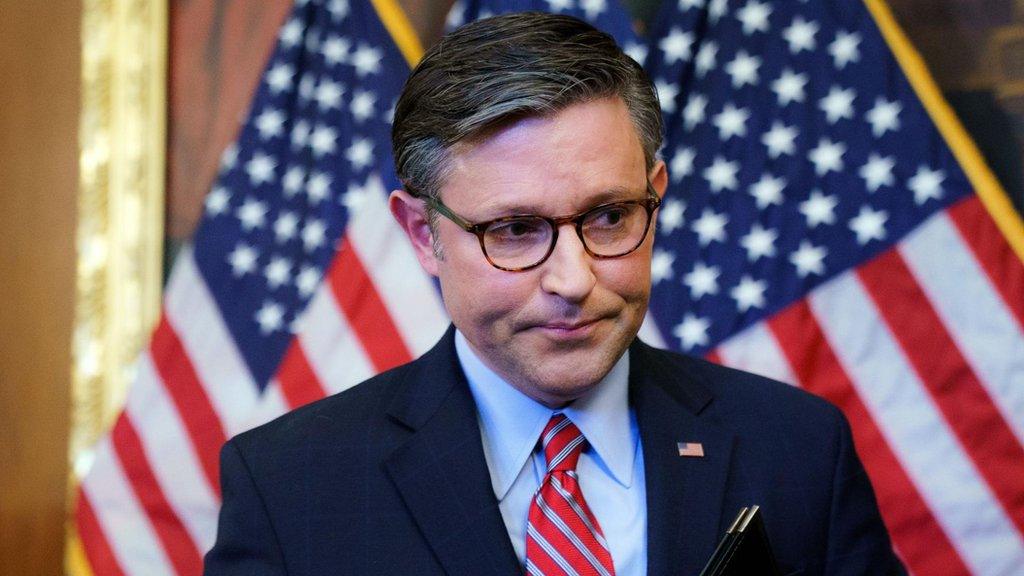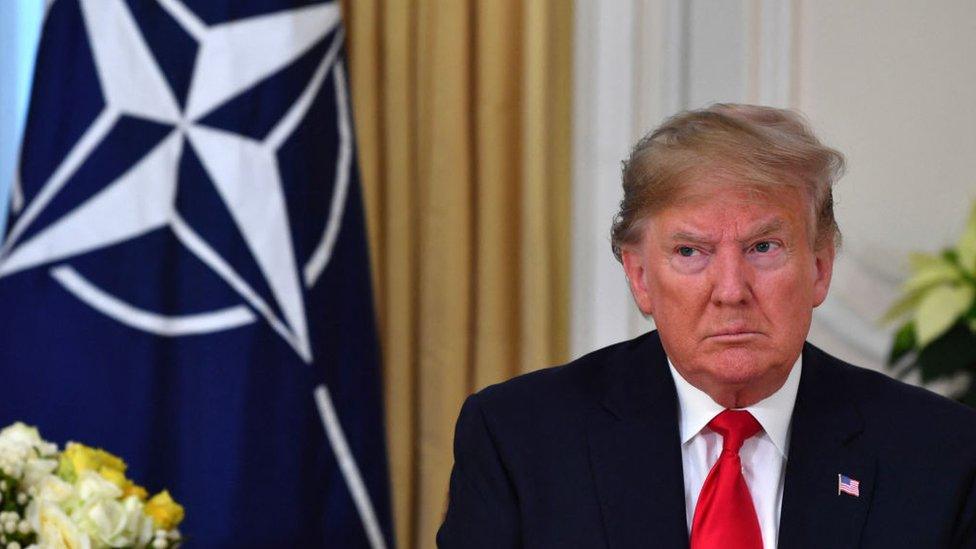Biden slams Trump criticism of Nato as 'shameful'
- Published
Watch: President Biden calls Trump's Nato comments "shameful"
President Joe Biden has blasted criticism of Nato by his likely 2024 election challenger, Donald Trump, as "dumb", "shameful" and "un-American".
The Democrat assailed Mr Trump for saying he would "encourage" Russia to attack any Nato member that did not meet its defence spending quota.
Mr Biden said the remarks underscored the urgency of passing a $95bn (£75bn) foreign aid package for US allies.
The bill just passed the Senate, but it faces political headwinds in the House.
At the White House on Tuesday, Mr Biden said a failure to pass the package - which includes $60bn for Ukraine - would be "playing into Putin's hands".
He said the stakes have risen because of Mr Trump's "dangerous" remarks over the weekend.
"No other president in history has ever bowed down to a Russian dictator," Mr Biden said.
"Let me say this as clearly as I can. I never will. For God's sake. It's dumb. It's shameful. It's dangerous. It's un-American."
At a rally on Saturday in South Carolina, Mr Trump, a Republican, criticised "delinquent" payments by Nato members.
Watch: Trump would not protect countries from attack by Russia if they do not pay enough into Nato
He recounted a past conversation he said he had had with the head of "a big country" about a potential attack by Russia.
Mr Trump said the official had asked if the US would defend a Nato member that had not met its financial obligations.
"I said: 'You didn't pay? You're delinquent?'" Mr Trump told the crowd. "'No I would not protect you, in fact I would encourage them to do whatever they want. You gotta pay.'"
Mr Biden said his predecessor was treating the military alliance like a protection racket.
In a message aimed at House Republicans, the president said: "Are you going to stand with Ukraine or are you going to stand with Putin? Will you stand with America or Trump?"
Nato Secretary-General Jens Stoltenburg announced at a news conference on Wednesday that 18 of its 31 members would this year hit their targets of spending 2% of gross domestic product on their defence budgets.
In 2016, only five Nato members met this goal, prompting harsh criticism from Mr Trump, who repeatedly suggested the US might withdraw from the alliance.
Mr Stoltenburg told reporters in Brussels: "The criticism we hear is not about Nato, it is about Nato allies not spending enough on Nato." He added that the upwards trend in military spending by European allies showed this message had been received.
The Kremlin, meanwhile, said Mr Trump's most recent criticism of Nato was "nothing new".
"This was one of Trump's main messages that he used in his relations with members of the alliance," Kremlin spokesperson Dmitry Peskov said on Wednesday.
"In fact, he constantly repeated this 'two per cent' on various occasions. So there is nothing new in his approach to this problem."

The spat between Mr Biden and Mr Trump over Ukraine aid and US-Nato relations highlights what could be one of the defining divides in the November's presidential election.
Mr Biden has frequently presented the US as being a key participant in a generational global conflict between democratic nations and autocracies.
In his telling, Ukraine is one of this conflict's pivotal battlegrounds, and European allies, both in Nato and the EU, are key partners.
During his four years as president, Mr Trump frequently downplayed US participation in multilateral alliances of any kind, instead focusing on direct relations with other nations and their leaders, with less of a defined global outlook beyond putting "America First".
If Nato and other US allies did not directly advance American interests, he has been comfortable suggesting that they are expendable.
The package approved by the Senate early on Tuesday includes $60bn earmarked for Ukraine, $8bn for Taiwan and other US allies in Asia, $14bn for Israel's war against Hamas and another $10bn for humanitarian aid in conflict zones, including Gaza.
It had the support of 22 Republican senators but met considerable resistance from conservative lawmakers who are against additional funds being sent abroad until the government tackles a migrant crisis at the southern US border.
Related topics
- Published8 February 2024
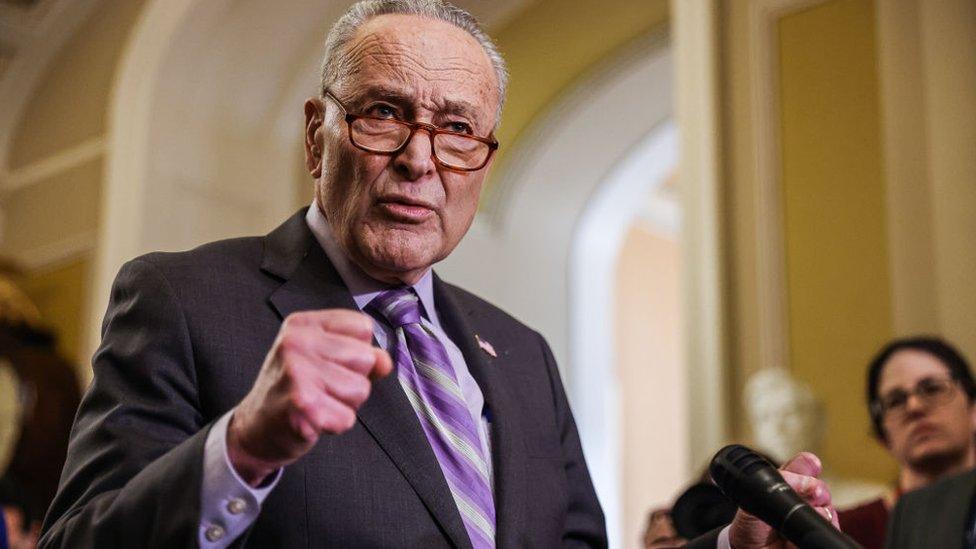
- Published7 February 2024
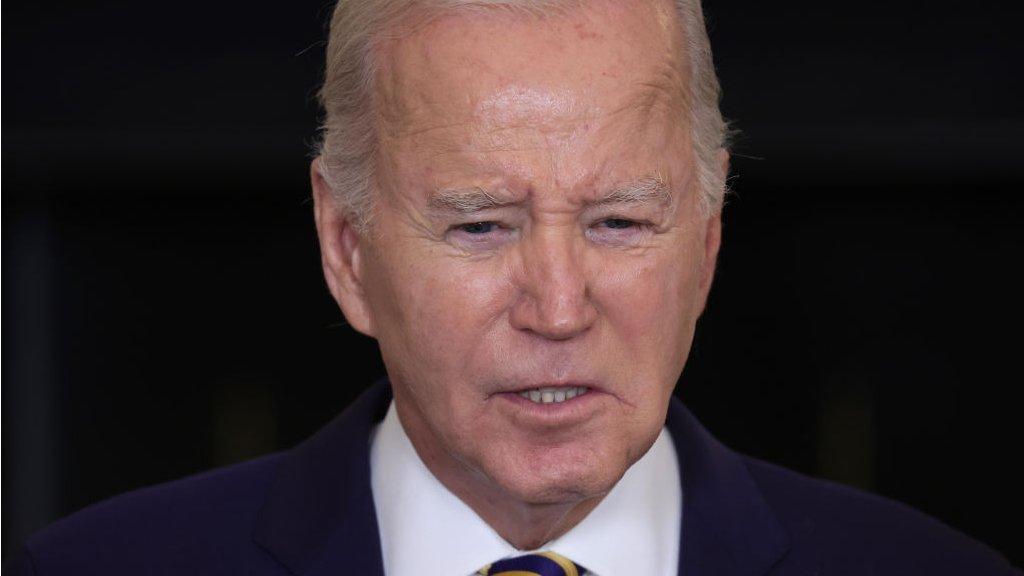
- Published27 January 2024
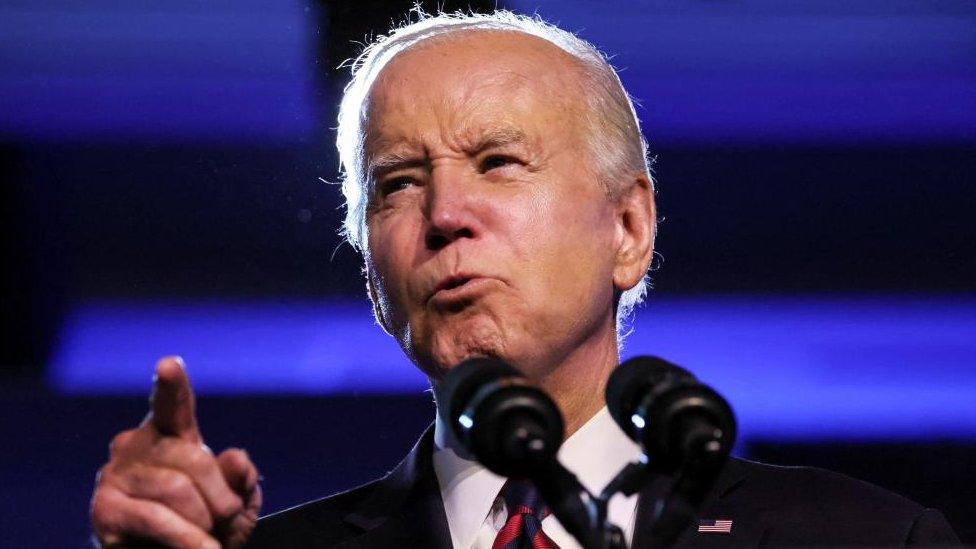
- Published7 December 2023
